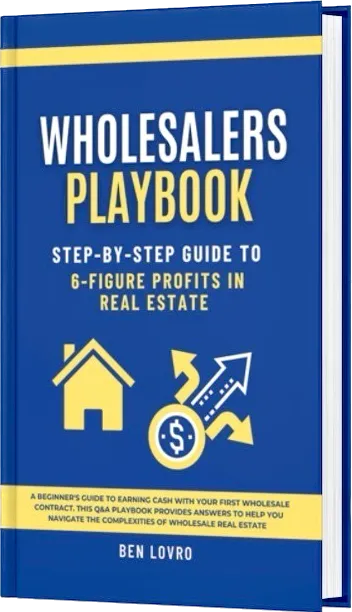Investor Syndicate Blogs
Download The Deal Flipping Playbook

Financial Freedom on a Budget: How-To Guide
Introduction
Before we begin, let's clarify what financial freedom means. About having enough money to live life on your own terms. You're not tied down to a job you dislike just because you need the paycheck. Financial freedom gives you the power to make choices based on your happiness, not just your financial obligations.
Creating Your Budget
Budgeting might not sound thrilling, but it's the foundation of your financial journey. Start by tracking your expenses for a month. Everything you spend money on, from that delicious pizza to the latest video game. This helps you understand where your money is going.
Next, create a budget. Allocate your money to different categories like food, entertainment, and savings. Make sure to set aside some cash for saving and investing.
Saving Is Key
Saving money is a vital step in achieving financial freedom. Aim to save at least 20% of your income. You can start with a simple piggy bank or open a savings account. As you grow older, you can explore more investment options like stocks or bonds.
Living Within Your Means
Tempting to spend all your money on the latest gadgets or trendy fashion items. But to achieve financial freedom, you need to live within your means. That means not spending more money than you earn. It might require skipping that expensive concert ticket or waiting for a sale, but it's worth it in the long run.
The Power of Investments
Once you've saved some money, it's time to make your money work for you. Investing is like planting seeds that grow into wealth-bearing trees. Look into options like stocks, bonds, and mutual funds. Do your research or consult a financial advisor to make wise investment choices.
Understanding Passive Income
Passive income is like having a money-making machine that works while you sleep. Money you earn without actively working for it. Some ways to generate passive income include real estate investments, dividend stocks, or creating an online business. Learning about passive income early can set you on the path to financial freedom.
Educate Yourself
Learning about personal finance is like unlocking a superpower that can help you make smart money choices throughout your life. If you're in 8th to 10th grade, you're at the perfect age to start building your financial knowledge. Here's why it's essential and how you can get started:
Why Learn About Personal Finance?
Imagine having the ability to manage your money wisely, save for your goals, and make informed decisions about spending and investing. That's what personal finance knowledge can do for you. It's like having a superhero skill that helps you navigate the financial world with confidence.
Patience Is a Virtue
Financial freedom, the ability to make choices and live life on your terms without money worries, is like embarking on a fascinating journey. Imagine it as a road trip where you are the driver of your financial destiny. If you're in 8th to 10th grade, this journey might seem long, but it's absolutely achievable with time and discipline.
Just like any adventure, there will be ups and downs. Some months, you might save a lot, and other times, unexpected expenses may pop up. Don't be discouraged by temporary setbacks.
Financial freedom isn't about having tons of money right away. About making smart choices along the way. Start by learning about money, saving a portion of what you earn or receive, and investing wisely. Over time, your savings will grow, and your investments will work for you.
Avoiding Debt
Debt can be like a big boulder blocking your path to financial freedom, and it's something you should be mindful of, especially in your teenage years. Imagine it as owing someone money, and they want you to pay them back with extra money on top! That extra money is called "interest," and it can make things more challenging.
One common type of debt is from credit cards. These cards allow you to buy things even if you don't have the money right then, but they often come with high-interest rates. That means if you don't pay the full amount you owe, the debt grows because of that interest. So, it's a good idea to use credit cards wisely and pay them off on time.
Building an Emergency Fund
Life can be full of surprises, and that's why having an emergency fund is so important. Think of it as your financial safety net. Imagine you're walking on a tightrope, and sometimes, you might slip. An emergency fund is like a soft cushion that catches you when you fall.
But how much should you have in your emergency fund? Well, aim to save enough to cover three to six months' worth of living expenses. Let's break it down:
Imagine you have some regular expenses like food, rent or mortgage, utilities, and maybe a car payment. Now, multiply that by three or six. That's how much you should have in your emergency fund.
Why three to six months? Because it gives you time to get back on your feet if something unexpected happens, like a medical bill or a car repair.
So, start saving now, even if it's just a little bit each month. Your future self will thank you when you have that cushion to fall back on in times of need.
Setting Financial Goals
Setting clear financial goals is like creating your own treasure map to a brighter future. Imagine you're an explorer, and your goal is to discover hidden treasures. These treasures could be anything you desire, like buying your first car, going to college, or exploring the world.
Start by writing your goals. This turns your dreams into something tangible. Like putting an "X" on your treasure map. For example, if your goal is to buy your dream car, write it down.
Next, you need a plan to reach your treasure. Just like a pirate needs a ship to sail, you need a plan to reach your goals. If your goal is college, your plan might include saving money, getting good grades, and applying for scholarships.
Seek Guidance
Don't be afraid to ask for help. Talk to your parents, teachers, or a financial advisor. They can provide guidance and support on your journey to financial freedom:
Parents: Your parents are there to support you, and they can share valuable life lessons about money. Ask them questions, and don't be shy about discussing your financial goals with them. They can provide practical advice and help you make informed decisions.
Teachers: Your teachers are experts in various subjects, and some might even have knowledge about personal finance. If you're unsure about a financial concept or need guidance, reach out to them. They can recommend books, online resources, or even offer classroom lessons on money management.
Financial Advisor: Tailored to your financial goals, consider speaking with a financial advisor. They can help you create a personalized financial plan, explain investment options, and provide strategies to reach your goals faster.
Remember, asking for help is a sign of wisdom, not weakness. By seeking guidance from trusted individuals, you're taking a proactive step towards securing your financial future. So, don't hesitate—reach out to those who can help you navigate the exciting journey to financial freedom.
Giving Back
As you work towards financial freedom, remember to give back to others. Whether it's donating to a charity or volunteering your time, helping others can bring joy and fulfillment to your life.
Why Giving Back Matters
Giving back isn't just about money; it's also about your time and kindness. When you help others, you create a positive impact on their lives, and that's a wonderful feeling. Like planting seeds of happiness and watching them grow.
How You Can Give Back
Donate to Charity: If you have some extra money saved up, consider donating to a charity you like. Even a small amount can make a difference.
Volunteer: Your time is a valuable gift. You can volunteer at a local organization, whether it's helping at a food bank, reading to kids, or assisting the elderly.
Acts of Kindness: Simple acts of kindness, like helping a neighbor with their groceries or offering a listening ear to a friend in need, also count as giving back.
The Fulfillment Factor
When you give back, you experience a sense of fulfillment and happiness that money can't buy. A reminder that we're all connected, and our actions can make the world a better place.
So, as you embark on your financial journey, don't forget the power of giving. It not only enriches the lives of others but also adds depth and meaning to your own life.
Stay Disciplined
e all know how tempting it can be to spend money on things that catch our eye, especially when our friends are doing it too. But here's the secret to financial success: staying disciplined and sticking to your budget.
Impulse purchases are those spontaneous buys that seem exciting in the moment but can leave you regretting your choices later. Maybe it's that cool new gadget or the latest trendy fashion item. Peer pressure can also play a huge role in our spending decisions. We might feel like we need to keep up with our friends, even if it means spending money we hadn't planned to.
But here's the good news: when you stay disciplined and stick to your budget, you're making a smart move for your future. The sacrifices you make today will pay off in the long run. It means you're prioritizing your financial goals over short-term pleasures..
Celebrate Your Progress
Financial progress might not sound like a reason to party, but it totally is! Here's why: as you save money, stick to your budget, and make smart financial choices, you're getting closer to your goals.
So, how can you celebrate your financial wins? Well, it doesn't must a huge, fancy celebration. It can be as simple as treating yourself to a small treat, like your favorite ice cream or a new book. Or maybe you and your friends can have a movie night in or a picnic at the park.
The point is to acknowledge your hard work and give yourself a pat on the back. Saying, "Hey, I'm doing a great job with my money!"
By celebrating your progress, you'll stay motivated and excited about your financial journey. Plus, it makes the whole process a lot more fun. So go ahead, plan a little celebration for yourself, and remember to enjoy the journey to financial freedom!
In Conclusion
Financial freedom is an exciting goal, and you can start working towards it right now, even on a budget. By creating a budget, saving, investing wisely, and continuously learning about personal finance, you're setting yourself up for a future where you have more control over your life and choices. Stay patient, stay disciplined, and one day, you'll enjoy the sweet taste of financial freedom. Your future self will thank you!
Contact Us

Bet On Yourself
Empowering real estate investors with the tools they need to scale.






